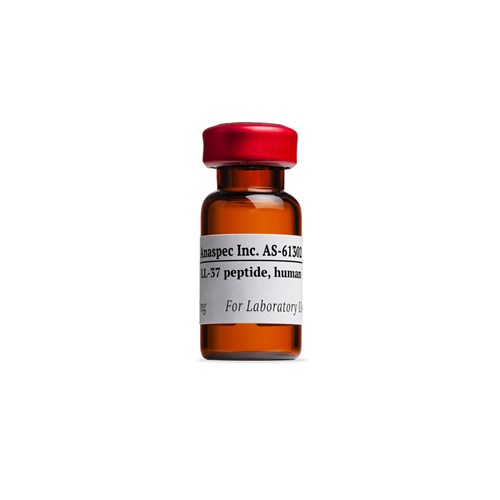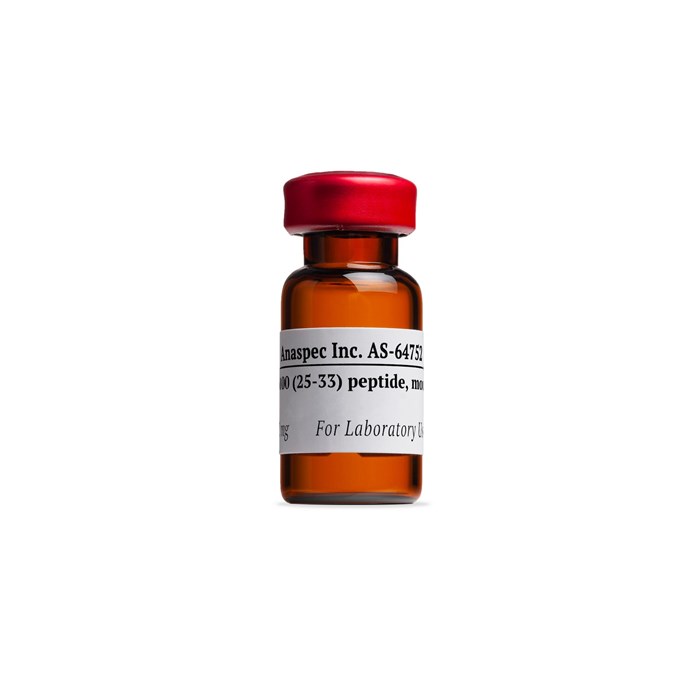gp100 (25-33), mouse - 1 mg
- Cat.Number : AS-64752
- Manufacturer Ref. :
-
Availability :
In stock
Alternative choices
This peptide sequence is found in residues 25 to 33 of the mouse self/tumor antigen glycoprotein (mgp100). This fragment is a H-2Db–restricted epitope recognized by CD8+ T cells. Mgp100 is an enzyme normally involved in pigment synthesis, and the epitope fragment is typically expressed in both normal melanocytes and melanoma cells.
Pyroglutamyl (pGlu) peptides may spontaneously form when either Glutamine (Q) or Glutamic acid (E) is located at the sequence N-terminus. The conversion of Q or E to pGlu is a natural occurrence and in general it is believed that the hydrophobic γ-lactam ring of pGlu may play a role in peptide stability against gastrointestinal proteases. Pyroglutamyl peptides are therefore considered a normal subset of such peptides and are included as part of the peptide purity during HPLC analysis.
Specifications
| Chemistry | |
| Sequence one letter code |
|
|---|---|
| Sequence three letter code |
|
| Molecular Formula |
|
| Molecular Mass/ Weight |
|
| Modification | |
| Conjugation |
|
| Quantity & Purity | |
| Purity |
|
| Storage & stability | |
| Form |
|
| Storage Conditions |
|
| Activity | |
| Biomarker Target | |
| Research Area | |
| Sub-category Research Area | |
| Usage |
|
| Source | |
| Source / Species |
|
You may also be interested in the following product(s)

References
Bedside to bench and back again: how animal models are guiding the development of new immunotherapies for cancer
J Leukoc Biol . 2004 Aug 01 ; 76(2) 333 | DOI : https://doi.org/10.1189/jlb.0304120
- S. Finkelstein
- et al
gp100/pmel 17 Is a Murine Tumor Rejection Antigen: Induction of “Self”-reactive, Tumoricidal T Cells Using High-affinity, Altered Peptide Ligand
J Exp Med . 1998 Jul 20 ; 188(2) 277 | DOI : https://doi.org/10.1084/jem.188.2.277
- W. Overwijk
- et al
Memory Th1 Cells Augment Tumor-Specific CTL following Transcutaneous Peptide Immunization
Cancer Res . 2008 May 01 ; 68(10) 3941 | DOI : 10.1158/0008-5472.CAN-08-0032
- A. Hosoi
- et al

